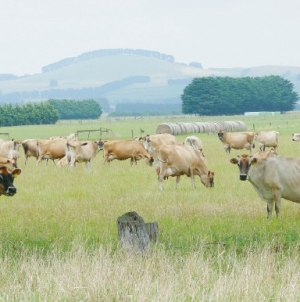Weaker economic conditions, combined with dry seasonal conditions have impacted New Zealand farmer confidence, particularly in the sheep and beef sector.
The latest quarterly Rabobank Rural Confidence Survey has shown farmer confidence has improved slightly in December 2012, but remained negative overall for the fourth consecutive survey.
The survey – completed in late November – showed 31% of farmers expected the rural economy to worsen over the coming 12 months, down from 44% last survey and up from 12% at the same time last year. Only 18% expect an improvement versus 33% last year, although this is a slight lift from 15% expecting an improvement since the September survey.
Farmers were fairly evenly split on the reasons for expecting the agricultural economy to worsen – one third cited the rising NZ dollar and one third overseas markets and economies, with just less than one third noting lower commodity prices. Other reasons commonly cited included lower dairy and lamb prices particularly, the rising costs of compliance and growing regulatory burden.
Rabobank New Zealand CEO Ben Russell says the survey results are not surprising given the ongoing uncertainty in the global economy and the very high New Zealand dollar is impacting farm gate prices, following a period of relatively good prices and climatic conditions last season.
However, those expecting an improvement in the agricultural economy mentioned also the drought in the US and globally tight food supplies as having positive flow-on effects for New Zealand exporters.
Farmers expectations of the impact on their own businesses also mirrors the economic outlook, with 33% of farmers expect their own farm performance to worsen in the next 12 months versus 42% in September.
"While this is an improved outlook, it is a big change from 12 months ago when only 8% of farmers expected their own business performance to worsen," Russell says.
Sheep and beef farmers are the most pessimistic with more than half (55%) expecting their farm business performance to worsen and only 10% expecting an improvement.
Around one quarter (26%) of farmers expect their farm business performance to improve, up from 20% in the September survey.
"Sheep farmers are responding to the lower farm gate lamb prices, in 2012 to 2013," Russell says. "This was signalled earlier in the year and has been reinforced with lamb prices down 25-30% over the first two months of the new season."
Dairy farmer expectations have nudged back into positive territory with those expecting the agricultural economy to worsen reducing from 41% to 21%. More than half (52%) now expect it to stay the same, while 25% expect an improvement (versus 20% at the last survey).
"Dairy farmers had generally enjoyed milk production flows higher than last year over the first half of the season," Russell says.
He added that while the survey was conducted before Fonterra lifted its expected milk price to NZD5.50/kg milk solid, this still remained 10% below last season's price.
Russell says dry seasonal conditions were also a driver of confidence this quarter, with expectations that it "could get tough" over the summer – this is in contrast to the favourable 2012 summer-autumn period – especially in the North Island.
"Already, cattle and sheep slaughter numbers are higher as dry conditions have prevailed over the North Island in particular," Russell says.
"The upper North Island was most impacted with 70% of farmers from that region considering conditions were too dry, while around three-quarters of those in the South Island considered soil moisture to be 'just right'.
"We need to bear in mind that we're not talking about drought here – rather, that it's too dry to be ideal pasture growing conditions and this is affecting confidence levels."
Investment intentions have improved with 27% expecting to increase their farm investment over the coming 12 months versus 20% in the last survey. Those expecting to decrease their investment was static at 14%. The improvement was largely driven by dairy farmers and horticulturalists with around one third in each sector expecting to lift investment.



















